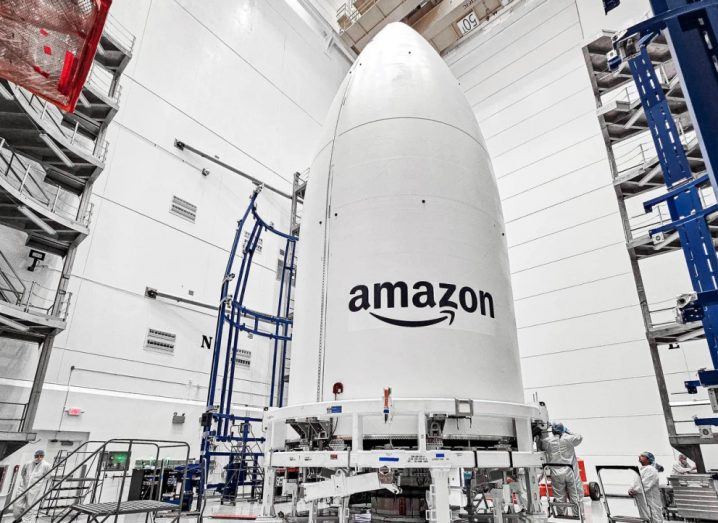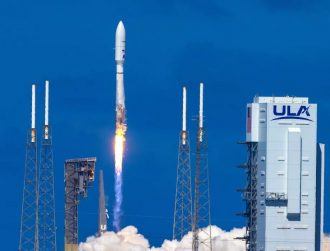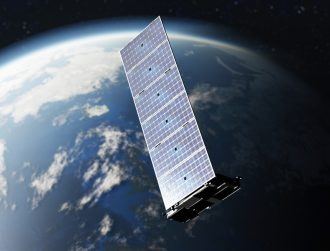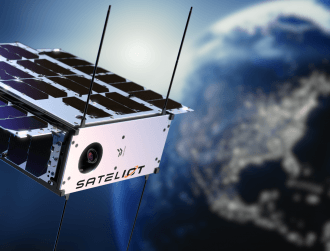
Image: Project Kuiper
Amazon will launch two satellites, KuiperSat-1 and KuiperSat-2, into space for the first time tomorrow to beam high-speed internet back to Earth.
Amazon is set to launch its first-ever satellites into space tomorrow (6 October) as part of the long-delayed Project Kuiper, the company’s response to SpaceX’s Starlink project.
A pair of satellites named KuiperSat-1 and KuiperSat-2 will be launched into space from Cape Canaveral in Florida tomorrow, with the aim to be placed into orbit 500km above the Earth’s surface, from where they will beam down high-speed internet for Amazon customers.
KuiperSat-1 and KuiperSat-2 are the first of more than 3,200 satellites that are to be manufactured and launched as part of Project Kuiper over the next six years. The so-called ‘protoflight’ mission will put to the test years of research and development.
“We’ve done extensive testing here in our lab and have a high degree of confidence in our satellite design, but there’s no substitute for on-orbit testing,” said Rajeev Badyal, Project Kuiper’s vice president of technology.
“This is Amazon’s first time putting satellites into space, and we’re going to learn an incredible amount regardless of how the mission unfolds.”
Launched in 2019 as a project to take on SpaceX in the high-speed satellite internet space, Project Kuiper is the brainchild of Amazon CEO and founder Jeff Bezos, who is fascinated by space travel and has founded his own aerospace company called Blue Origin.
Tomorrow’s highly anticipated launch marks the first step in the project’s realisation. At the end of the mission, Amazon said it plans to deorbit both satellites before they ultimately burn up in the Earth’s atmosphere.
“I’m proud of the entire Project Kuiper team for getting us to this point and grateful for their contributions,” Badyal added.
“The hard work that goes into building a new space system from scratch is tremendous, but this team has dedicated themselves to the goal of delivering affordable broadband to those who need it.”
Competitor and, indeed, leader in this space, Starlink recently surpassed 2m active customers according to Bloomberg. In March, SpaceX launched a global roaming package for customers travelling to locations where connectivity has been “unreliable or completely unavailable”.
In July, an international study found that SpaceX’s Starlink satellites are emanating “unintended electromagnetic radiation” that has a detrimental effect on the field of radio astronomy.
10 things you need to know direct to your inbox every weekday. Sign up for the Daily Brief, Silicon Republic’s digest of essential sci-tech news.






